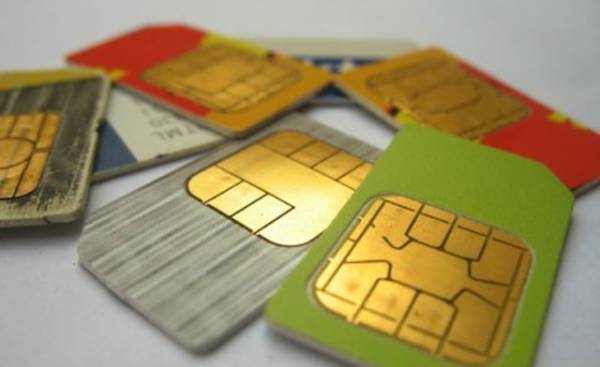Islamabad - It has been two months now that government announced completion of its mass drive to gather biometric data from mobile owners, as part of efforts to combat terrorism, but many questions remain unanswered.
In one of world's largest campaigns to collect biometric information to curb militancy, law enforcement agencies had decided to create a database of the mobile users through fingerprints.
Concerned about a proliferation of illegal and untraceable SIM cards, the government last year, after the Peshawar Massacre, forced the SIM re-verification drive, under the National Action Plan.
At the start of this year, according to Pakistan Telecommunication Authority (PTA), there were 103 million SIM cards in Pakistan. The mobile operators were given 90 days time to complete re-verification. For the process, mobile operators bought china made fingerprint reader machines and installed them throughout the country. But there were complains.
Overcharging by retailers against the official fee of Rs10, and the poor quality of the machines remained a hot topic of discussion till the end of the campaign. Due to poor quality, many elderly users and users who work manually with their hands compliant that machines failed to read their fingerprint patterns.
But despite all this, PTA ended the campaign in April, announcing blocking of 78 million SIMs issued against 60,496,307 computerised national identity cards and declaring it a historical success.
Among the questions that arise is: How come SIMs verification completed despite the fact that many of the users could not complete re-verification as machines failed to read their fingerprints?
It was not only the data reading issue but most of the users who had got issued multiple SIMs in the past, still complain that telco data show all SIMs still under their name, whereas, they only verified one SIM during the campaign.
What if that unverified SIM is used in some terrorist activity? Would the person, in whose name the SIM was registered, but he never verified it, would be held responsible? If not, then where the responsibility would be fixed? No one has any clear answer to these questions.
Even today, there is large chunk of SIMs which is not re-verified but remained unblocked. Without giving the number of SIMs that is active despite non-verification, PTA insists that most of the unverified SIMs have been blocked.
A small portion of SIMs has not gone through the BVS System. These include SIMs issued to Corporate Customers, Foreigners and SIMs used in machines. These are being re-verified/audited through other means, PTA spokesman told this scribe.
He said a total of 98.3 million SIMs have been blocked by individual service providers. "Mobilink has told us that they have blocked 22.3 million SIMs, Telenor 36.9 million, CMpak 17.3 and Warid 7.1 million, he said.
PTA spokesperson said approximately 229 million SIMs were issued to the users during past 5-10 years, which were processed during the exercise. Out of those, 98.3 million were blocked, while 129 SIMs were biometrically verified. He admitted that the authority was relying solely on the figures provided by the telcos. An audit would be conducted soon for verifying this data, he added.
The spokesperson admitted that multiple SIMs were still registered in the name of old users but said that it was the duty of users to go and block unused SIMs by themselves. During the verification process, there was an option to deny other SIMs, if someone has not availed that opportunity, one has to visit the cellular company again and request for blocking extra SIMs issued in his name.
PTA sources claim all major Telco CEO's have given an undertaking that they would carry out the whole exercise as per law and directions of the interior ministry and the PTA, and the figures provided by them regarding blocked SIMs are reliable. When asked why no audit has been carried out despite several announcements by the government during last two months, the officials avoided to comment.
Interestingly, despite blocking so many SIMs, the cellular mobile operators (CMOs) registered sustained growth in their broadband user base during the whole campaign with a slight variation.
Friday, April 19, 2024
Many non-verified SIM cards still working
| No audit done of data provided by cellular service providers

8:18 PM | April 19, 2024
Formula 1 returns to China for Round 5
9:05 PM | April 19, 2024
Germany head coach Julian Nagelsmann extends contract till 2026 World Cup
9:00 PM | April 19, 2024
IMF urges Italy, France to spend less, Germany to loosen purse strings
8:57 PM | April 19, 2024
PM calls UAE president, admires Emirati leadership's response to recent Dubai rains
8:55 PM | April 19, 2024
Church leader calls for including Christians in Gandhara Corridor
8:50 PM | April 19, 2024
A Tense Neighbourhood
April 19, 2024
Dubai Underwater
April 19, 2024
X Debate Continues
April 19, 2024
Hepatitis Challenge
April 18, 2024
IMF Predictions
April 18, 2024
Kite tragedy
April 19, 2024
Discipline dilemma
April 19, 2024
Urgent plea
April 19, 2024
Justice denied
April 18, 2024
AI dilemmas unveiled
April 18, 2024
ePaper - Nawaiwaqt
Advertisement
Nawaiwaqt Group | Copyright © 2024





